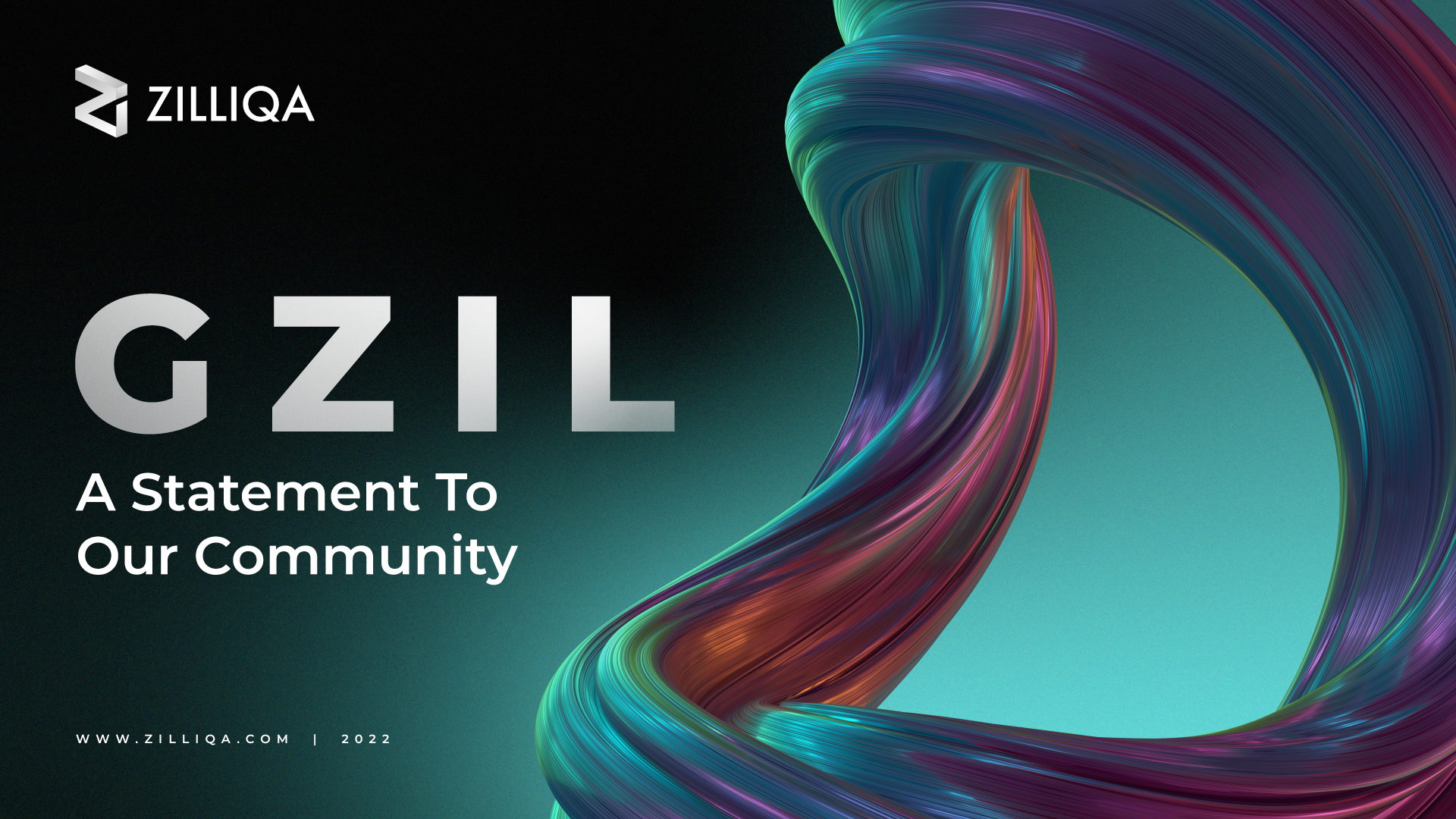gZil Community Statement

Summary
In this post, we wanted to address some of the community concerns about gZil and its progress.
A Short History of gZil
gZil, the Governance token from Zil was released to drive community engagement/governance, with the target of making it one of the most decentralised governance token in the space, which the team achieved, however as with every governance token, the utility of the token is the key component and driver which is not easy to achieve in such a nascent space. Another aspect of the token was to make it fixed-supply, with the ambition that the value should increase in time, if the utility is aligned to value creation.
So while Zilliqa has been successful from a distribution perspective (one of the most decentralised in the space) there is now a requirement to define a credible and sustainable model for the governance token and while opinions vary in terms of how the governance token should be applied there is a lot of thought that now needs to go into token to ensure it’s longevity and value.
At the moment, we continue to strive to create a mechanism that preserves the integrity of the chain and allows for community-generated proposals to be reviewed and adopted within short time frames. This is similar to the experience of other chains in this space. There are multiple recurring challenges, such as estimating team capacity with any accuracy, as well as dealing with the difficulty of implementing specific features without working within the same code base daily. We are therefore revisiting the governance approach, both in the medium and long-term.
Upcoming Changes
As many of you know, we’re working on releasing EVM support for Zilliqa sometime in the Fall; this will enable EVM compatibility as one of the many enhancements to our blockchain’s capabilities and attract more users.
As part of this upgrade, we are reexamining the role of what’s called gas metering approaches for both Scilla runtime and the EVM. We want to make sure that our approach to gas metering remains attractive to both users and validators. Moreover, this transition introduces opportunities to leverage gZil as part of any new state and it’s important that Zilliqa outlines a potential approach to how gZil could be deployed.
While we are not yet in a position to guarantee any substantive progress or indicate any specific timelines, we are committed to building an approach that will make gZil a valuable and intrinsic part of the Zilliqa ecosystem.
Governance 2.0: More Decision Power to Validators in Zilliqa 2.0
Zilliqa 1.0 presents a monolithic design to end-users and developers of dApps to build upon. One of the goals of Zilliqa 2.0 is to enable a customisable design that allows for more vertical integration of dApps and underlying blockchain capabilities. For instance, the needs of a game and those of a DEX are actually somewhat different when it comes to the necessary level of decentralisation, throughput, latency, storage costs, etc. As such, we envisage different categories of validators that might work on these different workloads.
We are planning for a significantly more refined treatment of gas, which may allow different gas approaches across the different shards as well. Our current thinking is that gZil will be instrumental in making decisions related to gas measurements in Zilliqa 2.0. As such, we anticipate a growing interest in gZil from network validators.
Forum for Ideas and Engagement
As part of continuous community outreach, we are planning to conduct some sessions with both individuals from within the community as well as public discussions to understand what some people would like to do for governance as we continue our experimentation with governance.
